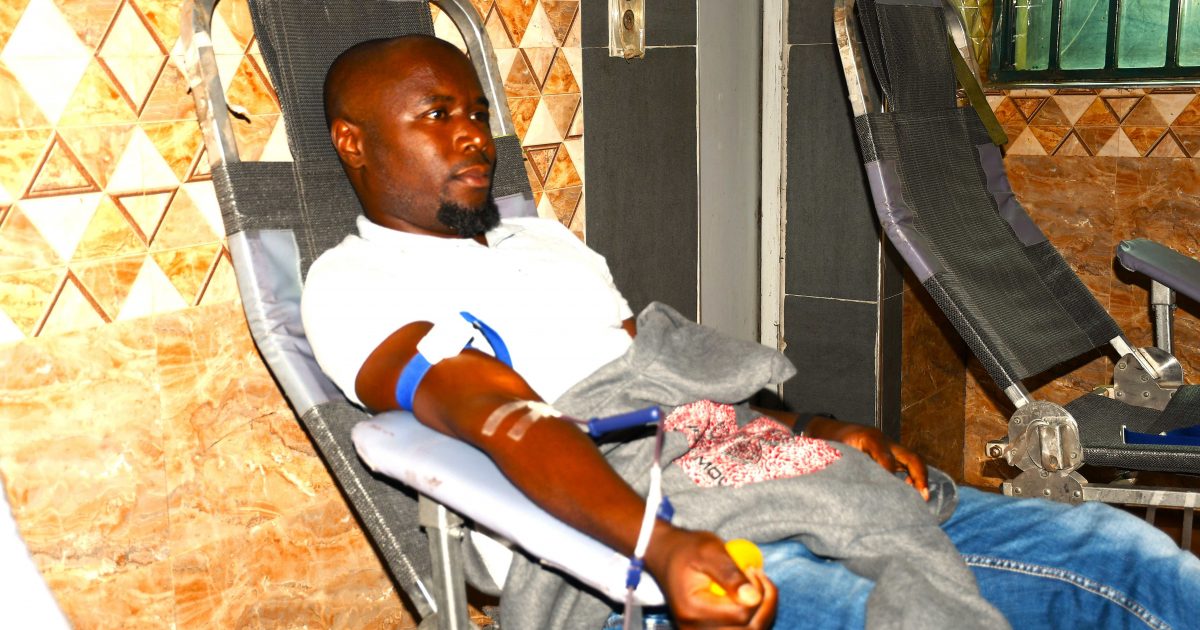
Kericho residents urged to shun misleadig myths on blood doation » Capital News
KERICHO, Kenya, Apr 19 — Kericho residents have been called upon to shun outdated myths and negative stereotypes that continue to hinder blood donation efforts.
Speaking during a blood donation drive held at Huduma Centre Kericho, where 37 selfless volunteers rolled up their sleeves to give the gift of life, Huduma Centre Manager Immaculate Kimundiu lamented that deeply rooted misconceptions still cast a shadow over the noble exercise.
“Too many people are still held back by fear and misinformation. Some think donating blood will make them weak, or that it’s only needed during major disasters, yet the truth is, blood is urgently needed every day in our hospitals,” said Kimundiu.
She urged members of the public to embrace a culture of regular blood donation, noting that a single pint of blood could mean the difference between life and death for a patient in an emergency.
“This blood donation drive is not just a symbolic gesture. It is a deliberate effort to bolster our county’s blood banks and ensure no life is lost due to avoidable shortages,” Kimundiu said.
“As Huduma Centre, we recognize that we are part of the community, and it is our duty to step in and support lifesaving causes. By mobilizing residents to donate blood, we’re playing an active role in making sure that our brothers and sisters in urgent need of transfusions can get the help they deserve,” she emphasized.
Kimundiu expressed confidence that such events could be even more successful in the future if members of the public understood the importance of donating blood. She added that blood is often lost during accidents and emergencies and emphasized that a single donation could help restore health and give hope to someone in critical need.
“It is by donating blood that we get that satisfaction that at least a life has been saved. Blood donation is one of the most selfless acts of kindness, yet its importance is often underestimated. In the community and beyond, the need for blood is constant, with hospitals relying on generous donors to save lives every day,” she noted
“I wish to recognize and sincerely thank all our partners who have been very instrumental in this exercise. We have completed this exercise because they came in handy,” she stressed.
Betty Chebet, the nurse in charge of the Blood Donation Unit at Kericho County Referral Hospital, confirmed that a total of 37 pints of blood were donated during the exercise. She expressed her sincere gratitude to the donors, acknowledging that their generosity could potentially save 37 lives.
“The exercise has proceeded smoothly without any constraints, and I am deeply thankful for the support we received. I extend my heartfelt gratitude to everyone who participated in the blood donation exercise. Their presence is a clear testament to the growing awareness and positive attitude towards this life-saving initiative,” said Chebet.
“We are pleased to report that the entire exercise was smooth, with no incidents of donors fainting. Moreover, donating blood not only saves lives but also promotes the regeneration of blood cells and enhances the efficiency of the circulatory system,” the nurse elaborated.
Chebet further advised members of the public to volunteer to donate blood anytime in future whenever there will be need, adding that during such drives there were very important tests done that would ascertain the amount of blood in the donor’s body.
“A donor cannot proceed to donate blood until we check whether he or she is in a position to do so. First, we check whether they have enough blood in their body and once they meet the threshold, we can then proceed to let them donate 350 millimeters of blood. Afterwards we appreciate donors by giving them some refreshments to regain some energy,” she explained.
She pointed out that men can donate blood once every 3 months while women can do so after 4 months in any facility in the country adding that a donor could visit their respective blood donation centres after 2 weeks to pick up their results.
“Once we collect blood, we take blood samples to conduct HIV tests, blood group, Hepatitis, sexually transmitted diseases and the general body health and in case we find any condition upon testing we can make arrangements to help the donor in managing emerging issues,” Chebet stated
Chebet assured that collected blood is kept in special bags with anticoagulant chemicals, which can keep blood fresh for 1 month, adding that the bags are then stored in a fridge in the blood bank. She further urged members of the public to ignore myths and visit the nearest blood donation facilities to get the right information regarding blood donation.